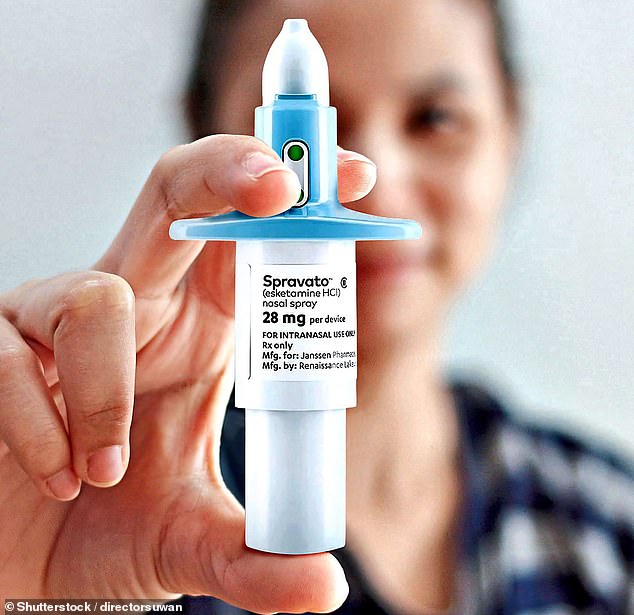<!–
<!–
<!– <!–
<!–
<!–
<!–
One trial found that giving mothers a ketamine-based medication immediately after giving birth reduces their risk of postpartum depression.
A single low dose of esketamine, a potent form of high-potency hallucinogen, reduced the number of major depressive episodes by approximately three-quarters 42 days after birth.
The study suggests that the drug, used as an anesthetic and antidepressant, should be considered for new mothers who show symptoms of depression during pregnancy.

A single low dose of esketamine, the active ingredient in ketamine, reduced major depressive episodes 42 days after birth by approximately three-quarters
Researchers from China and the United States conducted a trial with 361 pregnant women considered “at risk” for postpartum depression.
Some were given the drug while others were given a placebo.
At 42 days after delivery, only 6.7 percent of mothers who received esketamine experienced a major depressive episode compared to 25.4 percent of those who received a placebo.
Those who had received the drug also had fewer symptoms of depression overall.
The women were injected 40 minutes after delivery.
Some suffered side effects such as dizziness and double vision, but these disappeared within a day.
Dr Camilla Nord, of the University of Cambridge, said the study provides “compelling evidence” that esketamine could prevent postpartum depression in women with early symptoms.
Dr Rupert McShane, from the University of Oxford, added: “A single dose of intravenous esketamine is extraordinarily safe, effective and cheap for women at risk of worsening depression after childbirth.


Last year it was reported that billionaire Elon Musk was taking ketamine to manage depression. The Wall Street Journal reported that the Tesla CEO had been seen using the drug.
“The challenge for us in the UK is to find the funding for follow-up so that the benefits can be maximized and the risks minimised.”
Postpartum depression affects one in ten women after giving birth.
It involves intense feelings of sadness, anxiety and exhaustion that usually begin two or three days after birth and can last for months.
Other symptoms include insomnia, loss of appetite, intense irritability, and difficulty bonding with the baby.
In rare cases, an extreme disorder called postpartum psychosis may develop.
Existing treatment includes psychotherapy or traditional antidepressants, but these can take weeks to take effect.
Scientists have long looked at the potential use of ketamine as an antidepressant, but studies show that stopping it after regular use can trigger withdrawal symptoms, such as anxiety and tremors.
But because esketamine is more potent, smaller amounts are needed for it to have an effect on the brain.
Last year it was reported that billionaire Elon Musk was taking ketamine to manage depression.
The Wall Street Journal reported that Tesla’s CEO had been seen using the drug.
Musk reportedly told people he microdoses ketamine for depression and takes full doses at parties.
